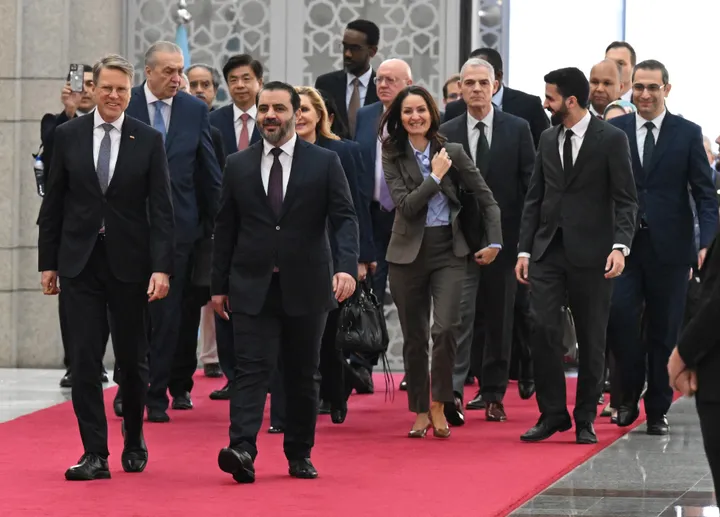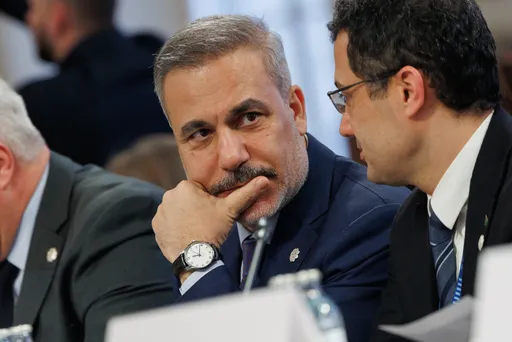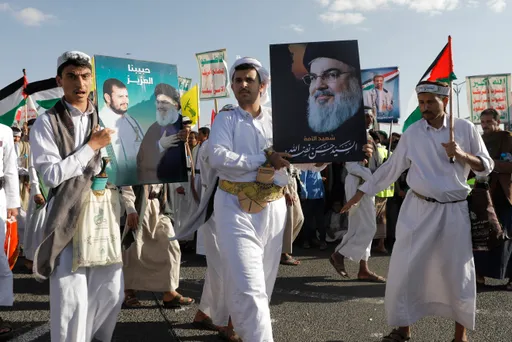Colonel Assimi Goita, the face of last year’s military coup in Mali, declared that he had seized power a day after the country's two transitional leaders, interim President Bah Ndaw and acting Prime Minister Moctar Ouane, were arrested on Monday.
While the EU slammed Goita's move, calling the arrests 'kidnapping', many critics say Mali is witnessing a 'coup within a coup'. The country was recovering from a fully-fledged military takeover that took place nine months ago.
What prompted the second military takeover? It all began with the government reshuffle, according to Andrew Lebovich, a policy fellow at the European Council on Foreign Relations.
“The motivating factor for what happened is the announcement of the government reshuffle, that would have stripped key posts -defence and internal security from two members of the military junta that staged the coup last August”, Lebovich told TRT World.
Halfway through the transition phase, Mali was going to conduct elections in February next year. Goita said the two detained leaders, Ndaw and Ouane, were stripped of their duties because they were trying to "sabotage" the period of transition.
Ndaw and Ouane were forcibly taken from their homes on Monday evening to the Kati military camp, a notorious base.
The “sabotage” Colonel Goita referred to was a sensitive cabinet reshuffle that revealed an internal power struggle in Mali’s transitional government.
Justifying the takeover, Goita said the leaders failed to consult him when they dropped two of his colleagues who were part of the 2020 military coup.
Cabinet reshuffle
Hours before Monday's arrests, the transitional government sought to ease the mounting public dissatisfaction towards it by announcing the reshuffle.
In the new list, the military kept the strategic portfolios it controlled during the previous administration, but the two coup participants — former defence minister Sadio Camara and ex-security minister Colonel Modibo Kone — were replaced.
Instead, Generals Souleymane Doucouré and Mamadou Lamine Diallo who were distant from the junta were named as the ministers of defence and security.
Christian Klatt, the country director for the Friedrich-Ebert Foundation in Bamako, agrees with Lebovich that the reshuffle caused the members of previous junta members to step up.
“Even though the new list has the same amount of military personnel as ministers (4), two of the proposed ministers (including) the ministry of defence had new ministers that are not that affiliated with the former junta”, Christian Klatt told TRT World.
The sensitive reshuffle was also aimed at buying time and managing public pressure over sticking to the promised reforms within the set deadline, which is the 18-month transition period.
"Over the last month, we have seen the lack of satisfaction with the work of the transitional government,” Christian said.
The country's largest union, UNTM, called for the continuation of the strike for the second week on Monday. This comes after the collapse of negotiations between the union and the government. The strike has paralysed public services in Bamako.
Also, the opposition M5 movement which spearheaded protests against Keita in 2020, this month urged dissolving the interim government and demanded a "more legitimate" body.
By including the more neutral generals as well as opposition members in the new administration, the government tried to calm the critics and gain leverage over the military members in the cabinet. But the country has been writhing in a multi-layered crisis for years.
Back to square one
In August last year, young military officers led by Colonel Goita ousted the then-President Ibrahim Boubacar Keita who has been in power since 2013. The soldiers took control of the capital Bamako after weeks of popular protests against the government over the President's failure to handle chronic corruption and the violent insurgency storming the country.
Threatened by the regional and international bodies, the military junta handed power to a transitional government. A retired army officer, Bah Ndaw, was appointed the interim president while coup leader Goita was placed as a vice president.
The transitional government was supposed to organise the legislative and presidential elections in 2020 to restore a democratic government in the country.
As well as this governance crisis, the vast country has been struggling to contain the violence which unleashed the militant groups controlling two-thirds of the country.
Despite the efforts by the interim President, doubts have remained whether the military-dominated government has the will, or the ability, to stage reforms on a short timescale amidst massive security challenges.
But now, with today’s military takeover, Mali seems to be returning to square one.
With the government reshuffle, the military “felt like they were being sidelined”, said Christian Klatt from Friedrich-Ebert-Stiftung Foundation.
However, their move, he says “raises the question if they ever had planned to let go of the power accumulated at the end of the transitional process”.
























